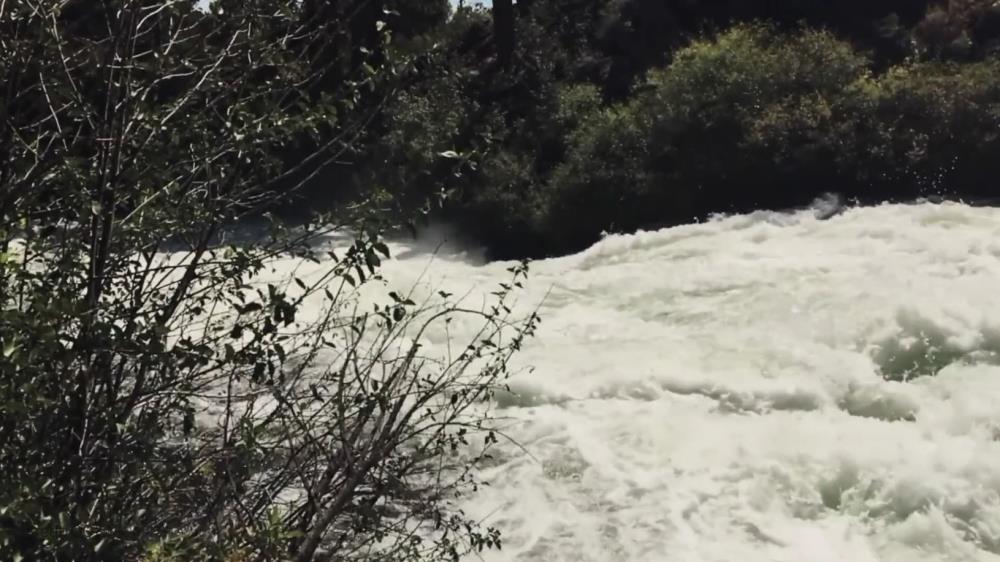
Related items loading ...
Section 1: Overview
Name of Research Project
|
Related Project
|
Part
|
|
GWF-WSPT: Winter Soil Processes in Transition
|
|
|
|
|
|
|
|
Program Affiliations
Related Research Project(s)
|
GWF-WSPT: Winter Soil Processes in Transition | |
Dataset Title
Characterizing temporal and spatial changes to the soil microbiome through the winter transition and freeze-thaw cycles in agricultural fertilizer amended soils
Additional Information
Creators and Contributors
|
Laura Hug | PI | laura.hug@uwaterloo.ca | University of Waterloo |
Grant Jensen | Originator | grant.jensen@uwaterloo.ca | University of Waterloo |
Konrad Krogstad | Collaborator | kjkrogstad@uwaterloo.ca | University of Waterloo |
Fereidoun Rezanezhad | Collaborator | frezanez@uwaterloo.ca | University of Waterloo |
Abstract
Agricultural soil from the rare Charitable Research Reserve, located in Cambridge, Ontario, was homogenized and used to pack four soil columns. Laboratory controlled conditions allowed for dynamically simulating a climate model of the winter transition months to a period of 55 days, including adjustments to temperature and precipitation. Insulation of the columns allowed for realistic simulation of the natural soil temperature gradient across depth and time. Two of the columns were amended with fertilizer while two were left as controls. This setup allowed for high resolution temporal and spatial soil sampling for high-throughput sequencing of microbial diversity (16S and ITS rRNA amplicon sequencing) for characterization of the changes to unique bacterial, archaeal, and fungal populations. Further adenosine triphosphate concentrations from the soil samples allowed for tracking of microbial activity over the course of the experiment. Changes to the microbiome are analyzed as a function of the changing geochemical properties and nutrient composition of the soil measured in collaboration with the Ecohydrology Research Group Laboratory at the University of Waterloo.
Purpose
Largely overlooked, microbial activity in soil persists under snow and ice throughout the winter transition and reaches its apex during thaw events. With the onset of climate change the active layer of soils will experience colder temperatures as it loses its snowpack insulation and consequently will undergo a higher frequency of freeze-thaw cycles. These changes will have downstream effects on the underlying geochemistry of soils and subsequently microbial composition and activity. The result leave unclear implications for the study of climate change, agricultural management, and biogeochemical cycling. Thus the objective of this research is to characterize the changes in microbial diversity and bioenergetics as a function of the changing environmental metrics of soil geochemistry and nutrient availability throughout the winter transition. Further the efficacy of pre-winter fertilizer amendments will be explored from concerns of decreasing potency as thaw events may allow for early onset microbial growth and consumption of the fertilizer. The data contained here is pursuant to the “Winter Soils Processes in Transition” project under the broader Global Water Futures program funded by Canada First Research Excellence Fund.
Plain Language Summary
Keywords
|
rare Charitable Research Reserve, Cambridge, Ontario, Canada - FANXK |
Bacteria |
Biogeochemistry |
Fungi |
Genetic analysis |
Nutrient cycling |
Ontario |
Soil microbiology |
Soils |
Soil temperature |
Citations
Hug, L., Jensen, G., Krogstad, K., and Rezanezhad, F. (2019). Characterizing temporal and spatial changes to the soil microbiome through the winter transition and freeze-thaw cycles in agricultural fertilizer amended soils. Waterloo, Canada: Canadian Cryospheric Information Network (CCIN). Unpublished Data.
Section 2: Research Site
Temporal Extent
|
Begin Date
|
End Date
|
|
2018-10-23
|
2019-05-01
|
Geographic Bounding Box
|
West Boundary Longitude
|
-80.3850468
|
|
East Boundary Longitude
|
-80.3850468
|
|
North Boundary Latitude
|
43.3837007
|
|
South Boundary Latitude
|
43.3837007
|
Is Boundary Rectangular
Research Site Images
Research Site Description (if needed)
rare Charitable Research Reserve, Cambridge, Ontario, Canada - FANXK
Basin
Great Lakes
Subbasin
Specific Locations (if needed)
Research Site Location
Map Not Available
Display
View on Global Map
Section 3: Status and Provenance
Dataset Version
Dataset Creation Date
Status of data collection/production
Dataset Completion or Abandonment Date
Data Update Frequency
Creation Software
Primary Source of Data
Other Source of Data (if applicable)
Data Lineage (if applicable). Please include versions (e.g., input and forcing data, models, and coupling modules; instrument measurements; surveys; sample collections; etc.)
Section 4: Access and Downloads
Access to the Dataset
Terms of Use
Does the data have access restrictions?
Downloading and Characteristics of the Dataset
Download Links and Instructions
Total Size of all Dataset Files (GB)
File formats and online databases
Other Data Formats (if applicable)
List of Parameters and Variables


 GWFNet
GWFNet Master
Master Data
Data Research
Research Map
Map
 Advanced
Advanced Tools
Tools
 . . .
. . .
 Metadata Editor
Metadata Editor
 Record List
Record List
 Alias List Editor
Alias List Editor
 Legacy sites
Legacy sites